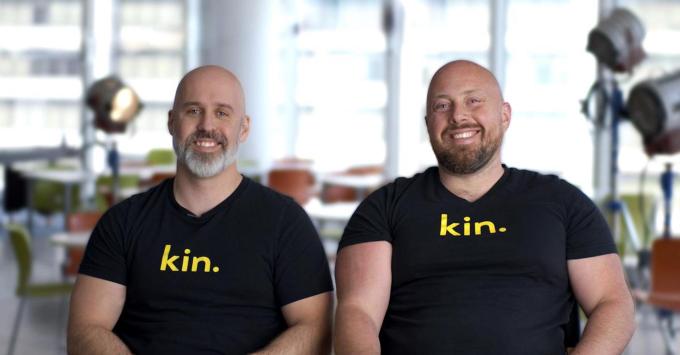Welcome to my new weekly fintech focused column. I’ll be publishing this every Sunday, so in between posts, be sure to listen to the Equity podcast and hear Alex Wilhelm, Natasha Mascarenhas and me riff on all things startups! And if you want to have this hit your inbox directly once it officially turns into a newsletter on March 27th (woo hoo!), sign up here.
It was a busy week for fintech news, but then again, what week isn’t?
Since fintech became a thing, there has been inherent friction between incumbents and startups. But something I’ve noticed over the years is that while in some cases, there will always be competition (especially between digital banks and traditional ones), there is also some cooperation generally between the two because let’s face it, banks realize they need fintechs to stay competitive. And fintechs too can glean knowledge from banks that have operated for decades.
And so you can imagine how interesting it was for me on Friday to have a conversation with Scott Case, Truist’s chief information officer, and Dontá L. Wilson, the bank’s chief digital and client experience officer. For the unacquainted, Charlotte, N.C.-based Truist is one of the nation’s largest financial institutions – as of June 2021, it was the 10th largest bank with $509 billion in assets. It was formed in 2019 as a merger between BB&T and SunTrust banks. Not long after that merger, the COVID-19 pandemic hit, leading to a “digital acceleration” in many industries, but especially finance.
“We had all a beautiful plan for all these new solutions, with an extended roadmap of a couple of years to bring them forward,” Wilson told me. “So the shift wasn’t something we hadn’t thought about, but the pandemic brought all these things forward much more quickly.”
As part of its efforts to stay on top of all things digital, Truist opened a 100,000-square-foot innovation and tech center. Some of the things the bank is getting serious about, according to Case, are cloud architecture, data and analytics. It’s even built an “API toolkit and playbook” that he describes as “very important” to the institution.
“We want to position ourselves to respond like a fintech responds,” Wilson said. “We don’t see them as competitors. We may compete with them for some clients but we also partner with them to bring solutions to our clients.”
Truist invests in them, too. Similar to how Citi and American Express formed their own venture arms, the institution backs companies such as Veem – a startup that has developed a global payments network for businesses – through Truist Ventures.
All smart incumbents recognize that sometimes it just makes more sense to work with a startup than build out their own technology. And says Truist, fintechs also at times need bank partnerships at times to scale up.
Said Case: “The world we live in is an interconnected set of ecosystems. Fintechs have taken a market share in some of them, and there are others that own a space. There are still others who need to partner. Clients want to travel through the journey seamlessly. So we’re behind the scenes engineering those partnerships and iterations to make that happen.”
And while Wilson believes while banks that have operated for decades like those that combined to form what is today Truist “have a 100-year start on fintechs,” he also acknowledges that fintechs “have brought a healthy competition to make sure everyone is elevating their games.”
On to infrastructure
A couple of weeks back, we touched on an investor survey that we published on TC+. An area of interest that came up among multiple investors was infrastructure. Well, this past week only provided further evidence that infrastructure is hot and continues to rake in the dollars.
I wrote about Tenderly, a startup that aims to make it easier for web3 developers “of all skill sets” to build blockchain products. The company raised $40 million in a Series B round of funding — just months after closing on its Series A and after seeing a 500% increase in year-over-year revenue.

Image Credits: Tenderly
As I reported, the financing is yet another example of the rapid succession of funding rounds in the blockchain infrastructure space — and fintech space in general. Earlier this month, TechCrunch also reported on Alchemy raising a $200 million extension to its Series C at a valuation of $10.2 billion. That company aims to be the starting place for developers considering building a product on top of a blockchain or mainstream blockchain applications.
I also reported on another infrastructure company that raised just months (five in this case) after its previous round. Coincidentally – and I just realized as I am writing this – both companies raised $40 million. Atomic is a provider of payroll APIs that powers 70 banks, credit unions and fintech companies such as Coinbase, Dave and Propel. This also ties into the above discussion as Atomic is an example of a startup that is working with both incumbents and fintechs to help connect consumers to their financial data for things like verification of income and employment, automating setup and updating of direct deposits, repaying financial obligations from their paycheck, optimizing tax withholdings and accessing earned but unpaid wages.
Not much else to say here beyond what we already know — infrastructure is hot.
Finding your calling
Another story I reported this week involved the departure of Instacart’s head of payments, Ofek Lavian, and his move to become COO of a startup called Forage.
In summary, Lavian had helped make it possible for Instacart to accept EBTs, more commonly known as food stamps, online. But during that process, he was introduced to Forage, whose mission is to make it easier for merchants everywhere to do the same.
Lavian’s passion came across during our conversation, which took place on his first day on the job.
“When I looked at all the places on the internet that people couldn’t use these funds, I realized that this was going to be my calling,” he told me.
I loved this story, honestly, because it’s about boosting inclusion which means a lot to me personally, and it’s always awesome to see someone find their calling and being willing to leave a big company that’s been around for years to take a chance on a fledgling company like Forage.
I wish both him, and the company, the greatest success.

Image Credits: Left to right: Justin Intal (CEO), Ofek Lavian (COO) and Victor Fimbres (CTO) / Forage
Fundings
Of course, there were plenty of other funding deals announced this week – way more than I could even think about covering. But here’s just a few:
Romain wrote about how European spend management startup Payhawk added $100 million to its Series B round that he had already covered back in November. The startup confirmed that it has reached a post-money valuation of $1 billion, proving that spend management is heating up worldwide.
He also covered the fact that Shares closed a $40 million Series A funding round led by Valar Ventures. That company has been working on a mobile app that lets you easily buy and sell shares, but with a social twist. You can follow your friends’ moves and talk with other users directly from the app.
TabaPay, an instant money movement platform, also this week revealed an undisclosed investment by the SoftBank Vision Fund 2. The startup says it is currently processing over 1 million transactions a day with a 2018-2021 CAGR of 111% and 153% in dollar volume.
Los Angeles-based Counterpart, a management liability insurtech, brought in $30 million in Series B growth financing. The company says it is growing amidst an “increasingly challenging operating environment for small businesses, where one in four has faced a management liability lawsuit in the last three years at an average cost of more than $100,000,” according to Chubb. Its offerings include crime insurance, among other things.
Speaking of insurance, Christine Hall wrote about how Kin Insurance raised $82 million of a Series D round that execs expects will officially close at $100 million. QED Investors led the round. Notably, the the Chicago-based direct-to-consumer home insurance company had in January had shelved plans to go public via SPAC. Kin Insurance is among its insurtech peers experiencing rapid growth, and in its case, closed 2021 with $105 million in premiums, up from $25 million in 2020.

Kin Insurance co-founders Lucas Ward and Sean Harper
And last but not least, Kaleidoscope, a fintech driving “education-based philanthropy,” raised a $10M Series A round to connect sponsoring organizations, donors and applicants. The startup says it has facilitated over $370 million in scholarships and grants over the last two years.
In other news
Melio, a B2B payments platform for small businesses, announced it had named former Meta and PayPal senior executive Tomer Barel as its new Chief Operating Officer. The fintech’s last raise – a $250 million round – valued the company at $4 billion in September. Melio had in January 2021 closed $110 million in funding at a $1.3 billion valuation.
In M&A news, DoorDash said it is acquiring Bbot, a hospitality technology startup that simplifies digital orders and payments processes, for an undisclosed amount. According to Restaurant Dive, the acquisition will strengthen DoorDash’s on-premise technology offerings and could grow its partner footprint since Bbot services restaurants, hotels, bars, breweries, food halls, ghost kitchens and bowling alleys.
Meanwhile, in scratching-our-heads news, Mercury, which describes itself as a bank for startups, restricted several accounts linked to African tech startups, our man on the ground there, Tage, reported.
The number of companies involved with this restriction is unknown. But several sources told TechCrunch that they ranged from a dozen to 30 — including well established YC-backed startups and newer upstarts.
Tying back to our original topic of fintechs partnering with incumbents, Mesh Payments announced it is teaming up with Visa to launch a numberles business card called Plug & Pay that it says lets Mesh users link that physical card to any of their virtual cards “and swap them out on the fly as many times as they want or need.”
In December, Ingrid had reported on how Mesh Payments, which provides a platform for companies to oversee and manage employees’ expenses, and for employees themselves to better track and manage how and where they spend money, had raised $50 million in a Series B led by Tiger Global.
In case you’re wondering how this differs from say Curve’s or Apple’s offerings, Mesh said that while their physical card doesn’t have a number printed on it, there is still a number associated with the account/card. Plug & Pay on the other hand, the company maintains, allows users to link the physical card to any of their virtual cards. It told me: “So, it’s almost as if the physical is empty and you ‘plug in’ the virtual card from the platform. If you want your physical card to have, let’s say, new limits or other features, you can ‘plug-in’ a new card from the platform, and swap as many times as you want – instantly.”
Mesh touts that this is a big deal when it comes to security in that if the card is compromised in any way, a finance manager can just link a new virtual card to the physical one. Also, finance managers have full control over the physical card, allowing them to disable the card, change its PIN or swap the virtual card remotely and instantly from the Mesh platform. The company is calling this “a spend management platform in your pocket.”
And in another example of fintechs partnering with banks, Plaid announced an “open finance relationship” with Frost Bank that will bring data connectivity to the institution’s nearly 400,000 customers located throughout Texas. Or in other words, Plaid wants to help Frost customers “securely and easily” integrate their accounts and finances online. This is a prime example of a bank recognizing that technology can make the lives of their customers easier, and doing something about it.
That’s it for this week! I hope you have an awesome rest of your weekend. See you next time.
